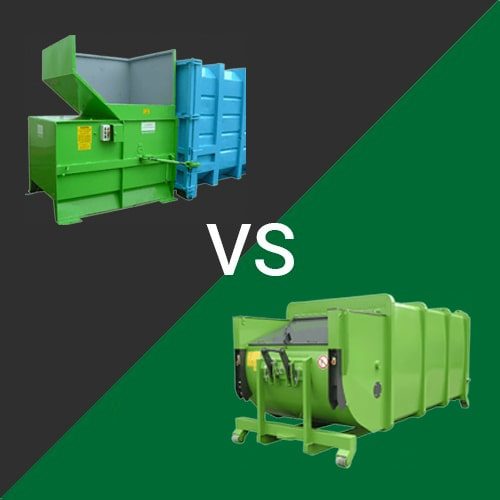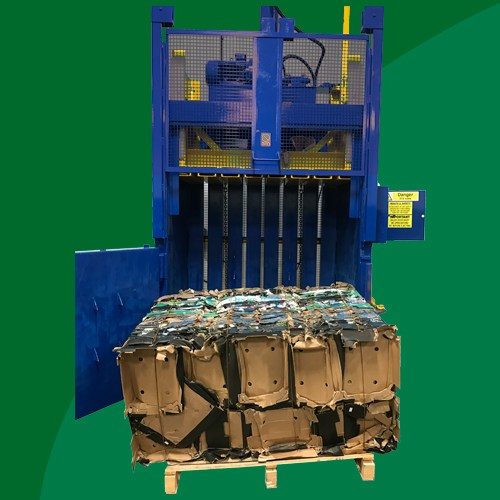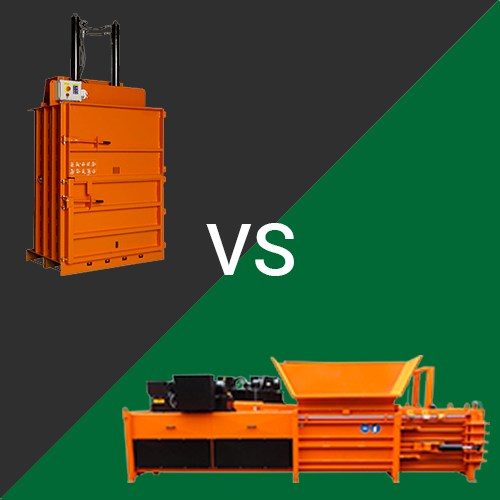Choosing the Right Waste Management Machinery: Renting vs. Buying for Your Business Size and Profit
Waste Management, seems like an environmental issue, which is something that is made for government dump yards, gardens, fields, or factories. If we think that waste management is only made for environmental purposes then we might need to think again. Waste management machinery plays a pivotal role in enhancing operational efficiency and environmental sustainability for businesses. These specialised tools help in various aspects such as, proper waste disposal, recycling, and resource recovery that minimise environmental impact while optimising resource utilisation. Investing in such machinery ensures compliance with regulations, cost-effectiveness, and a positive corporate image. According to the UN, only 18% of companies in the UK are aware of waste management and sustainable development.
Waste management machinery is quite a huge investment; The decision to rent or buy waste management machinery poses a significant dilemma for businesses, with considerations varying across different sizes and profit margins. Although both buying or renting waste management machinery provides their own benefits and advantages. It depends massively on the organisation that which alternative of possession it wants to undertake for maximum benefit.
Understanding Waste Management Machinery
Waste management machinery encompasses a range of specialised equipment designed for the collection, transportation, processing, and disposal of waste. Such machinery includes:
- Waste balers: Waste balers are used to compress and bundle materials for efficient storage, transportation, and recycling of waste products.
- Waste compactors: Waste compactors are used to compress and reduce volume, optimising waste storage and facilitating efficient disposal and recycling.
- Waste crushers: Waste crushers are machines that break down and reduce solid waste materials into smaller, manageable fragments.
- Digesters: Digesters are vessels that break down organic matter
- Shredders and Granulators: Shredders and granulators are machines that reduce materials into smaller pieces for recycling or disposal.
- Densifiers: Densifiers enhance material density, making substances more compact, durable, and resistant to wear or damage.
- Bin Lifters: Bin lifters are mechanised devices that hoist and empty waste bins, enhancing efficiency in waste management systems.
These tools are efficient in streamlining, collecting, processing, and disposing waste. They also help in reducing volume, optimising resource recovery, and promoting sustainable practices.
Assessing Your Business Needs for Waste Management Machinery
Choosing between renting and buying waste management machinery depends severely on the nature of the business, it furthermore impacts the operations of the same. Deciding your waste management machinery using the following checklist can help in taking an informed decision.
- Assess the scale of your business operations, considering factors such as the number of employees, facilities, and overall operational complexity.
- Quantify the amount of waste generated regularly. Evaluate peak periods and variations in waste production to determine the machinery and capacity needed.
- Identify and categorise the types of materials your business processes. Different materials may require specific waste management solutions or machinery.
- Stay informed about local waste disposal regulations. Ensure that your waste management practices align with legal requirements to avoid penalties and maintain environmental responsibility.
- Consider how waste management solutions integrate with existing operations. Optimise efficiency by choosing machinery that aligns with your workflow and minimises disruptions.
- Anticipate changes in business growth, production volume, or material types. Choose scalable waste management solutions to accommodate future needs, avoiding the need for frequent upgrades or replacements.
- Forecasting future waste management needs ensures proactive planning, accommodating business growth, evolving waste compositions, and maintaining efficient, sustainable practices.
Advantages of Renting Waste Management Machinery
Renting waste management machinery is the easiest way to start the process.
It allows financial flexibility and lower upfront costs, enabling businesses to allocate resources efficiently.
Secondly it allows access to a wider range of up-to-date machinery ensures optimal performance, incorporating the latest technological advancements. Finally, renting fosters a dynamic and scalable approach, enabling companies to tailor their machinery to specific projects, ensuring cost-effectiveness and operational efficiency.
Benefits of Buying Waste Management Machinery
Buying waste management machinery allows more independence and lubricates customisation to the individual waste management process of each company/business.
Furthermore, full control over machinery usage and maintenance allows customisation to specific operational requirements, fostering efficiency. Purchasing is particularly suitable for businesses with consistent and specific waste management needs, providing a dedicated solution. This approach ensures stability and reliability, allowing companies to tailor their waste management strategy according to their unique demands, ultimately enhancing operational control and long-term sustainability.
Cost-Benefit Analysis for Renting vs. Buying
A cost benefit analysis of waste management machinery offers a clearer picture as to which option will be beneficial for your business.

Conducting a Cost-Benefit Analysis for Waste Management Machinery
A cost-benefit analysis can be tricky to perform, but Landfill Alternatives once again saves the day, performing this easy checklist to determine your own evaluation.
- Identify your business’s waste management needs, considering volume, materials, and operational demands.
- Calculate Total Cost of Ownership (TCO); for buying: upfront purchase cost + ongoing maintenance + repair expenses + potential tax benefits ÷ expected lifespan of the machinery. For renting: cumulative rental fees over the same period.
- Analyse the TCO for both options, considering short-term and long-term perspectives.
- Consider non-financial factors such as operational control, sustainability goals, and the ability to quickly adapt to changing waste management requirements.
Expert Guidance and Support
Selecting the right kind of waste management machinery is an important decision especially because it requires quite a wholesome investment. It is always advised to take expert opinion in such cases. Experts provide insights into financial implications, operational needs, and environmental considerations, ensuring an informed, strategic decision.
Landfill Alternatives offer exclusive services to cater to your individual needs.
- No obligation, free onsite visit.
- Your one stop hub for all waste management machinery.
- A large range of waste management balers and compactors.
- Still confused? Use our unique product finder option to meet your demands.
Waste management machinery is essential, but it need not be confusing or nerve wrecking. We at Landfill Alternatives understand your needs and know what works best for your business. Choose from our wide variety of waste management machinery and pick what would work best for your business or contact us today to get a free onsite visit.



